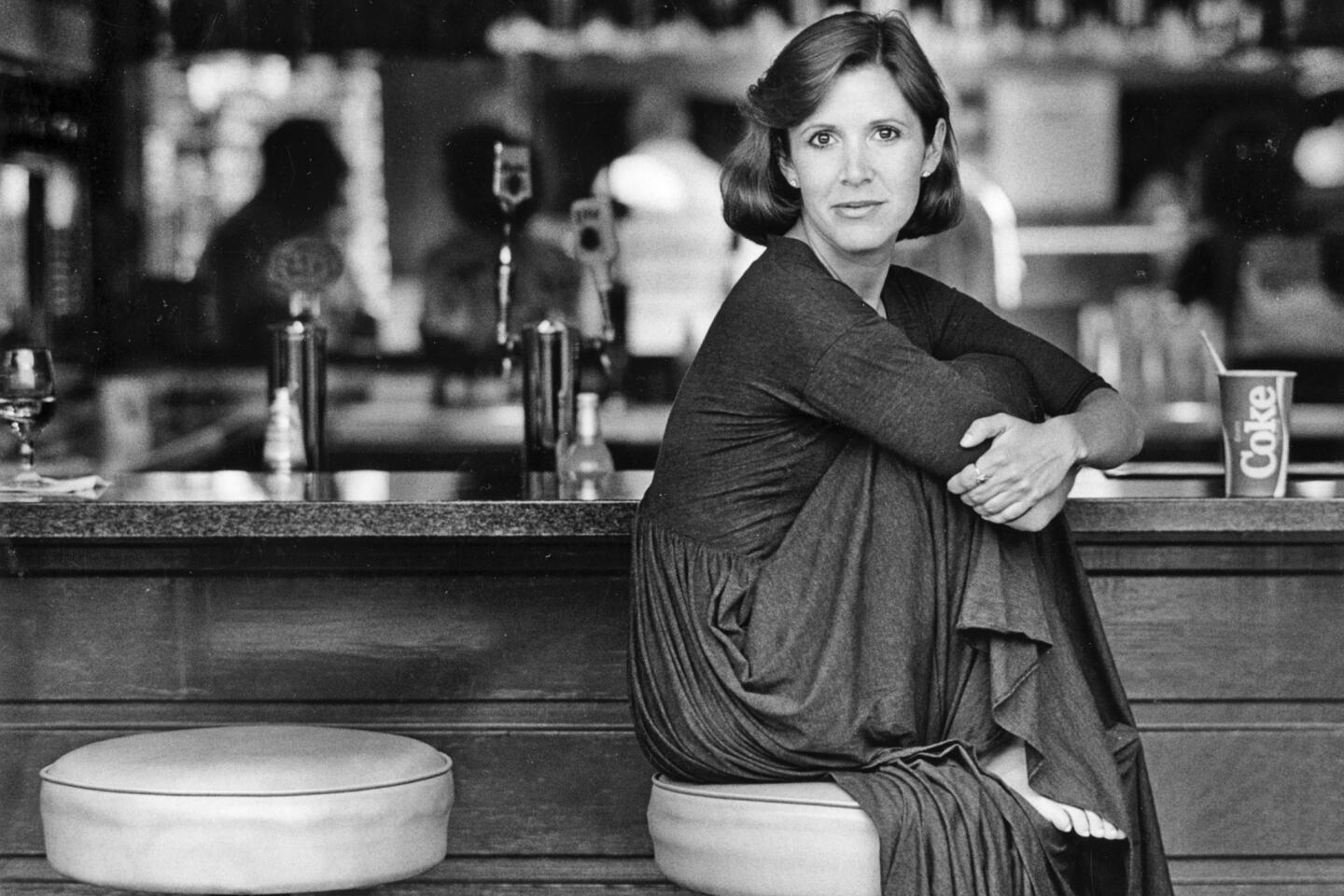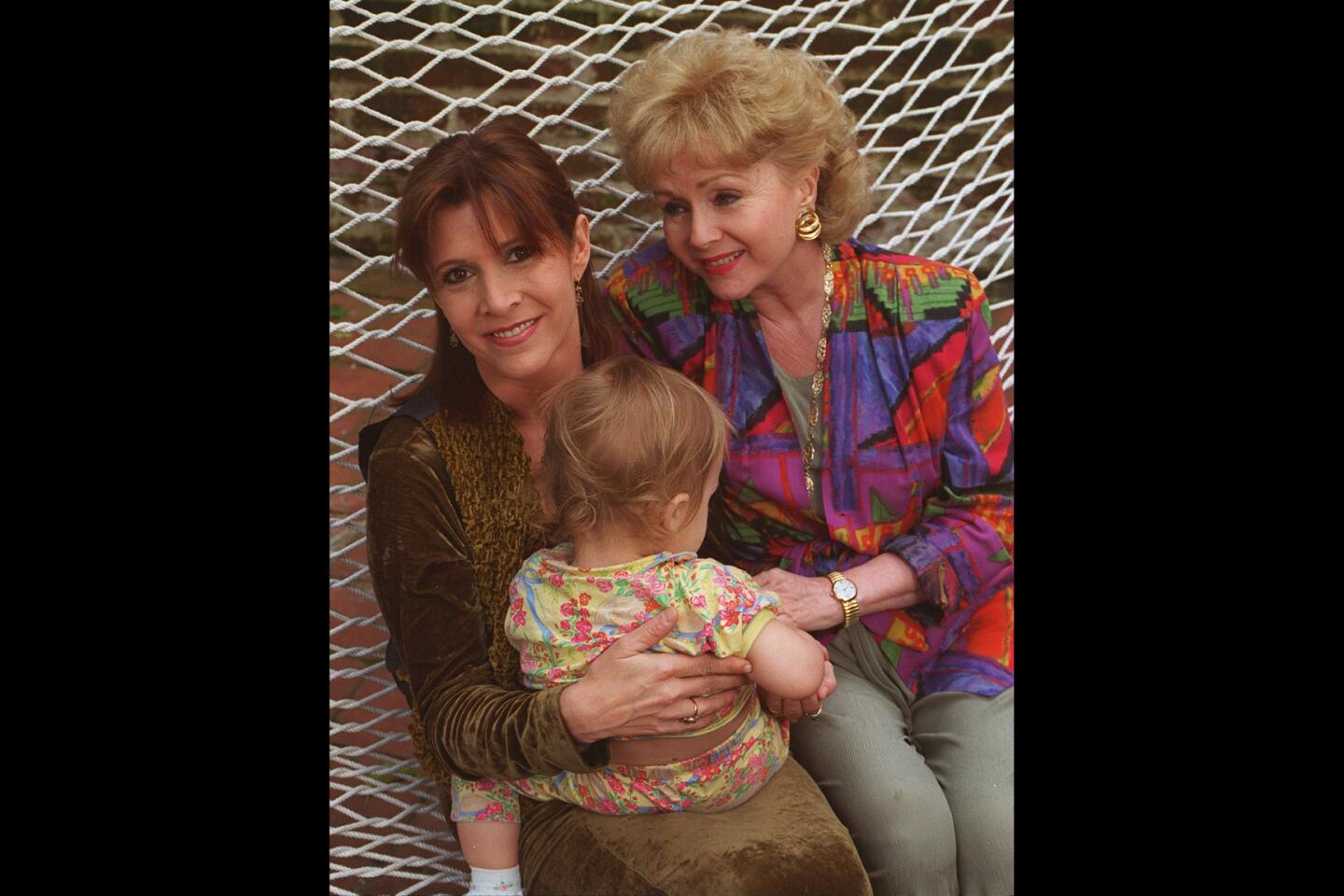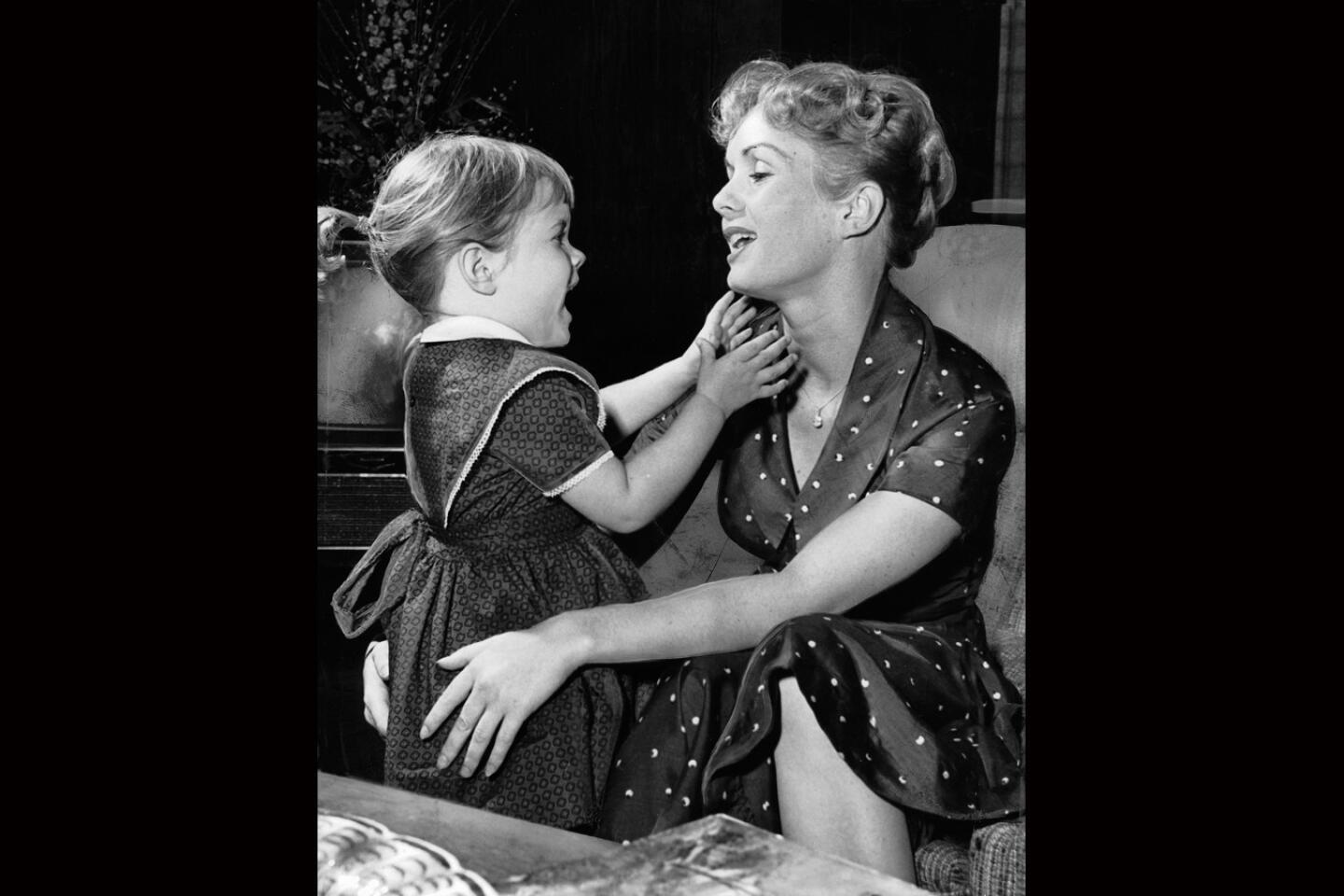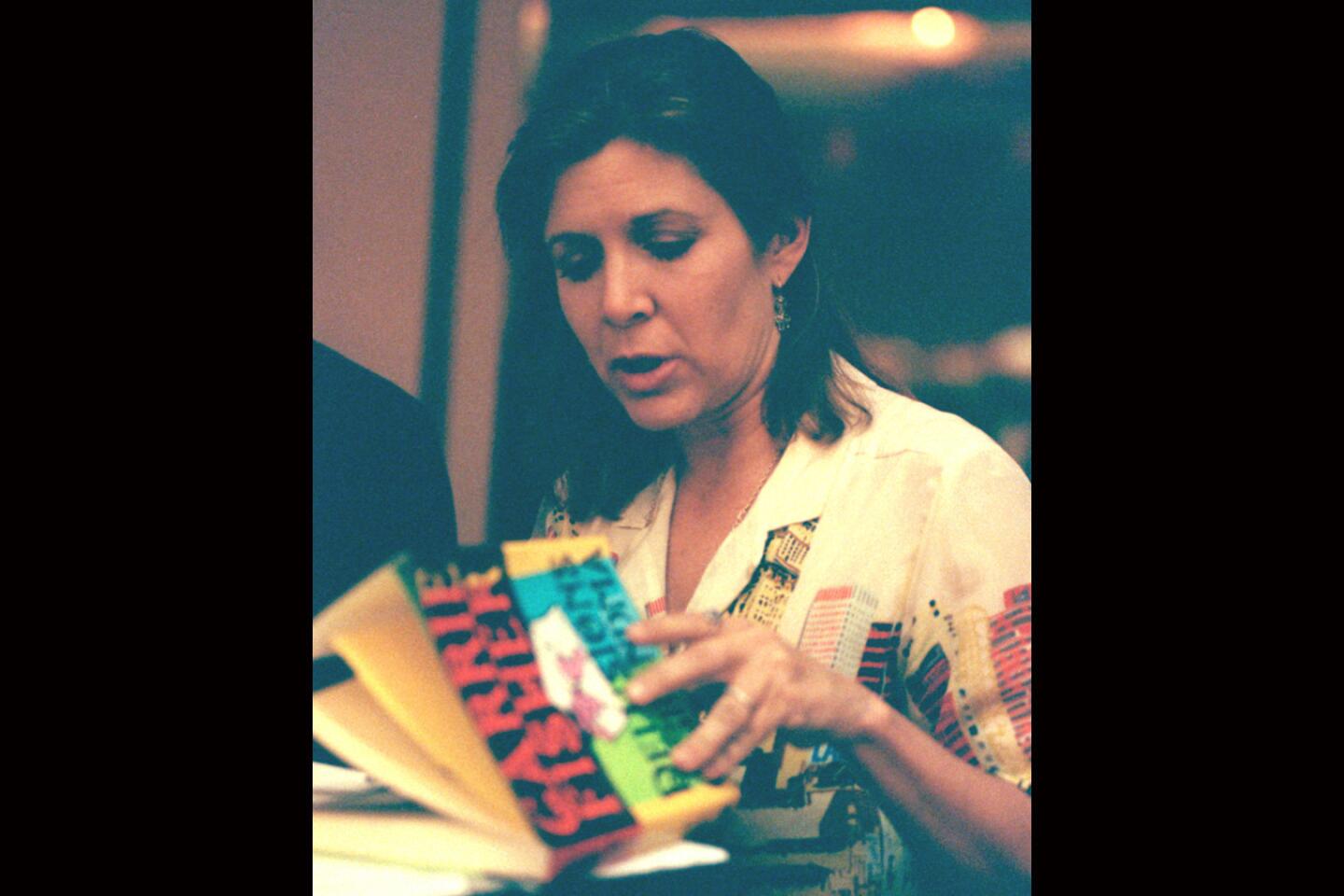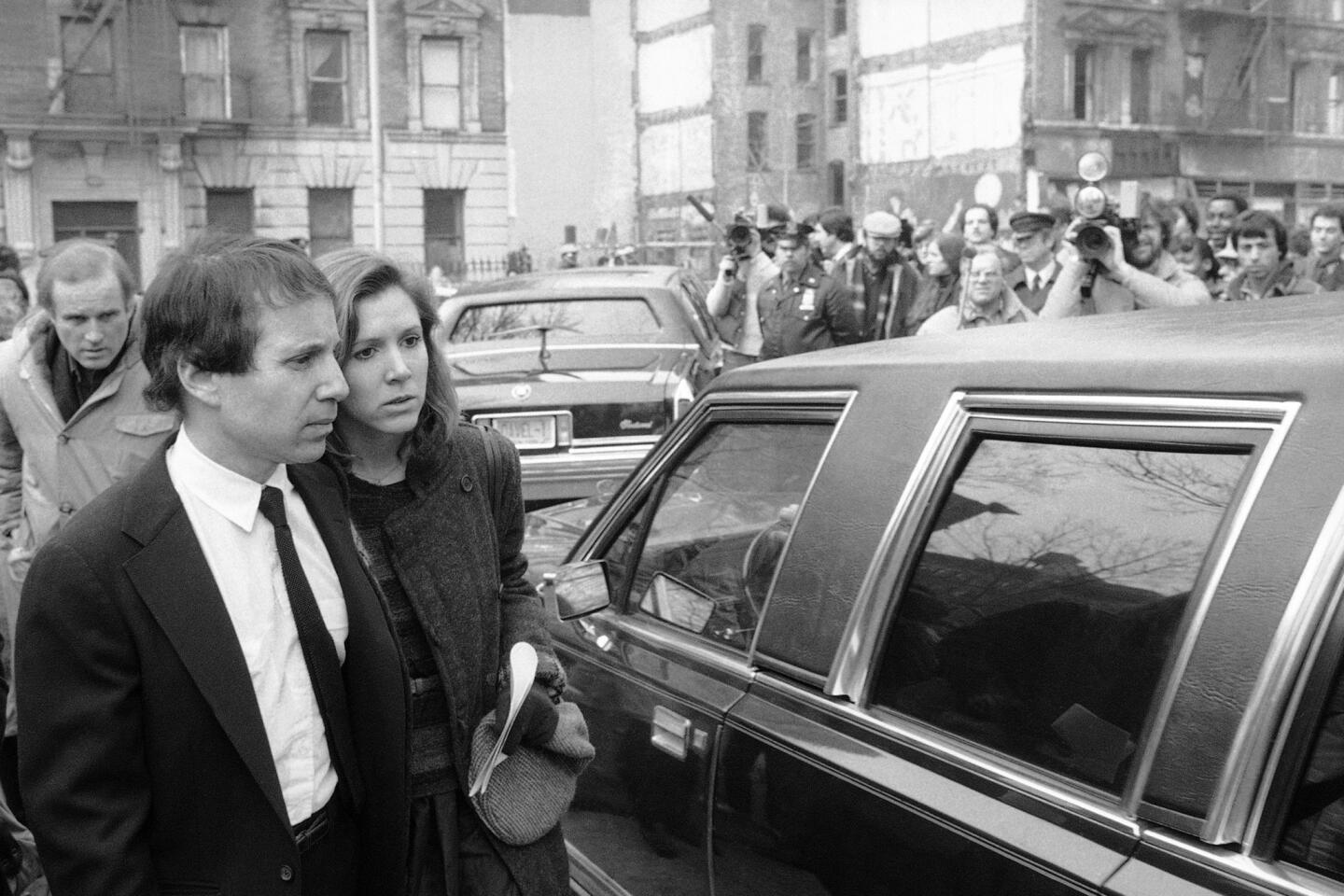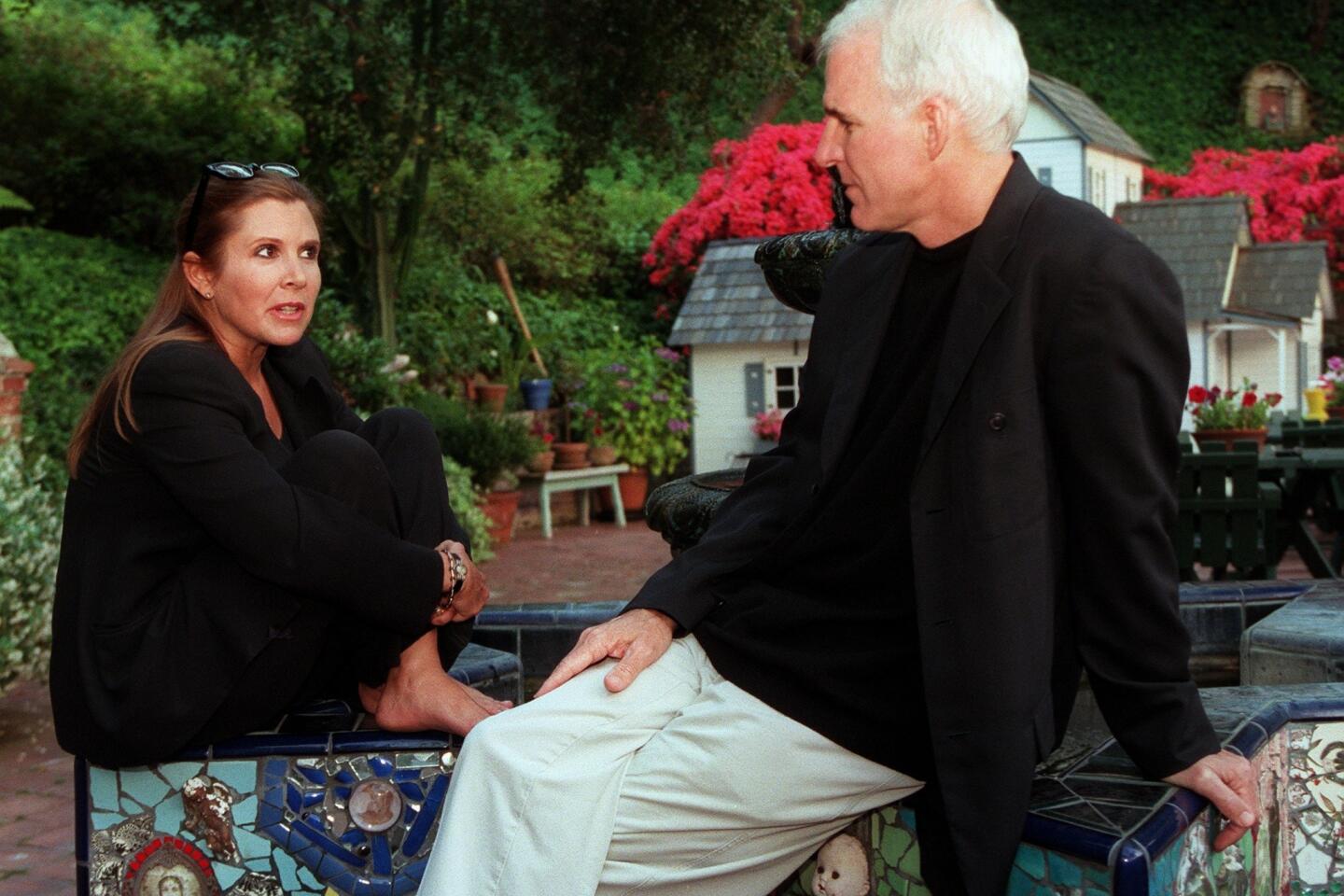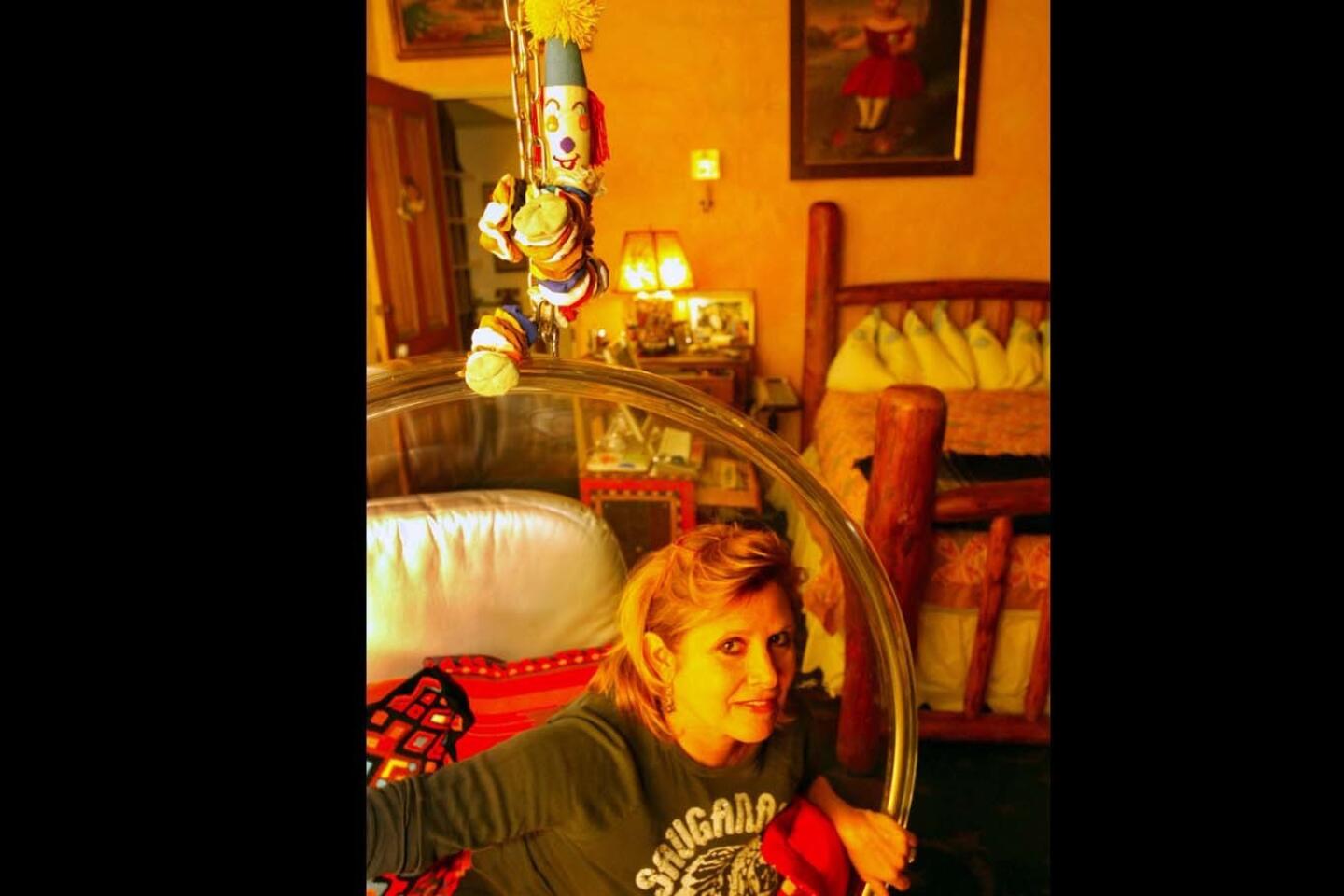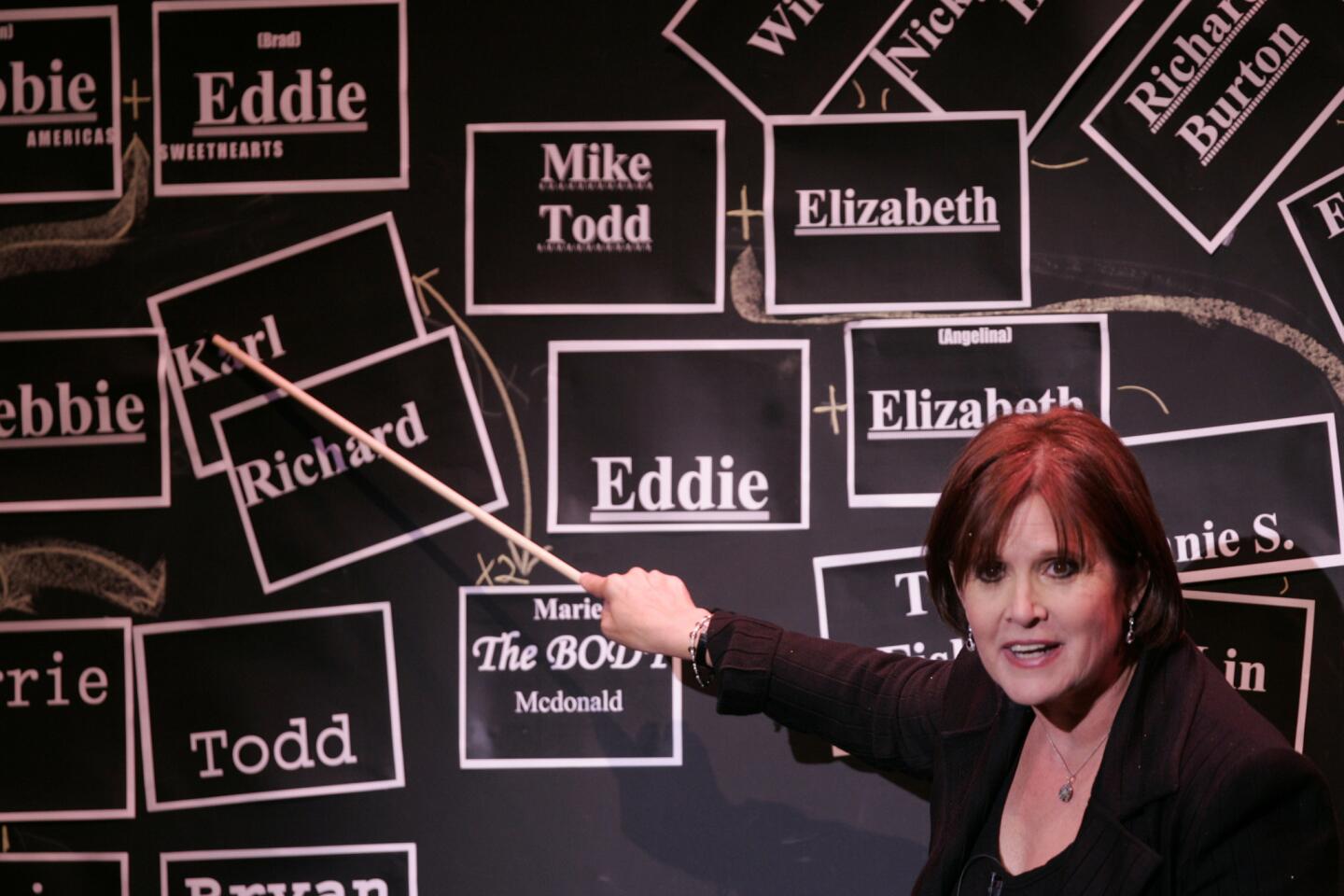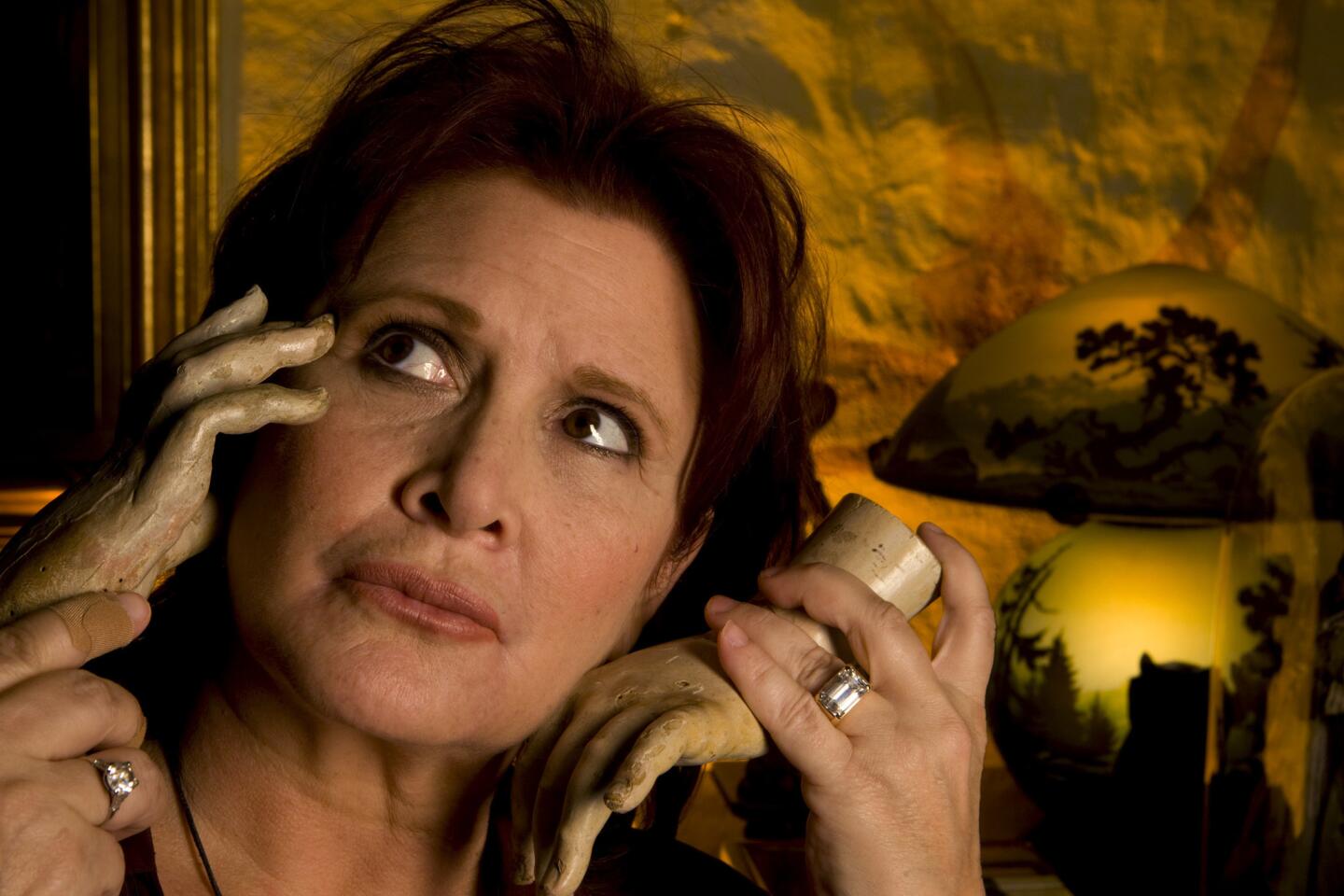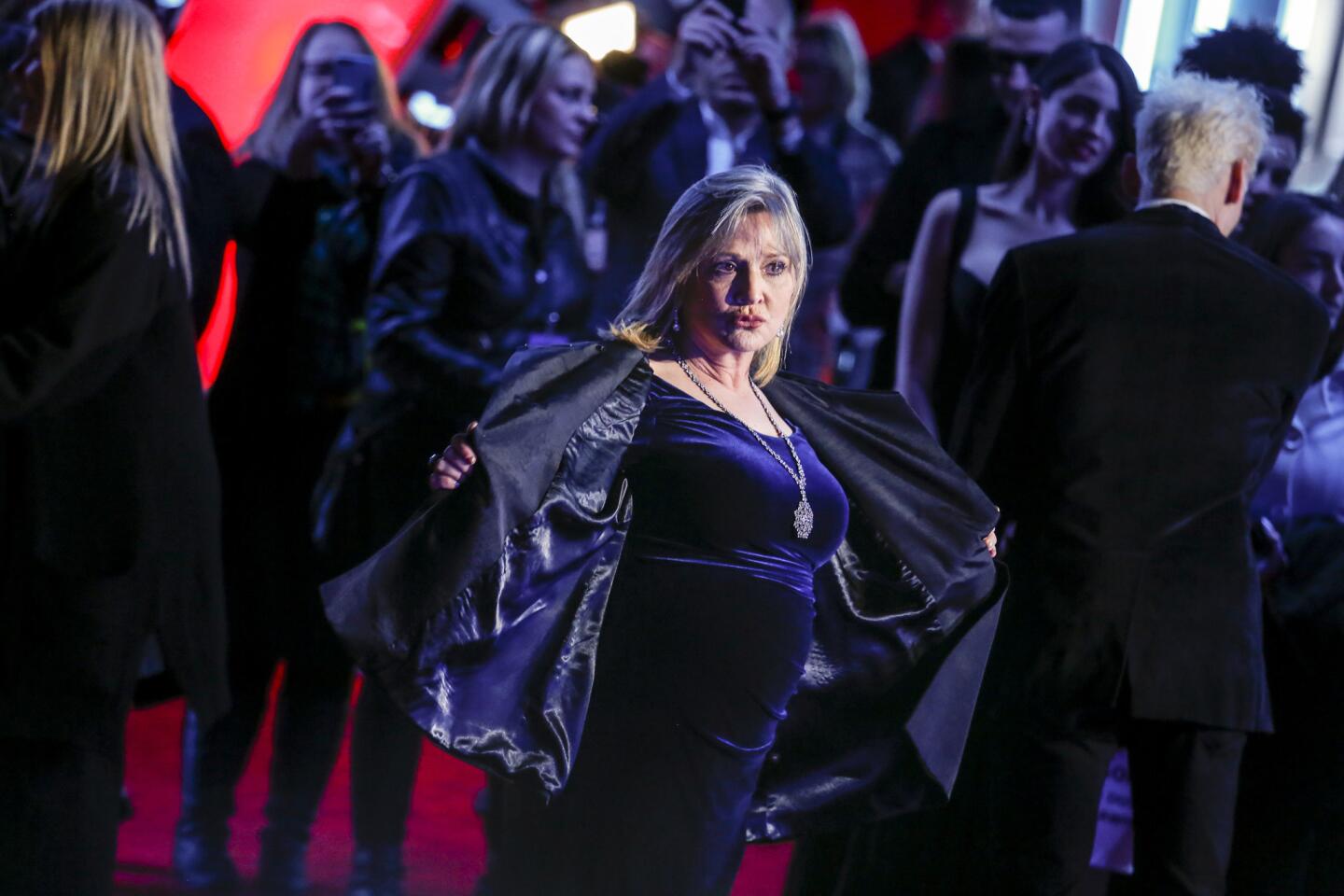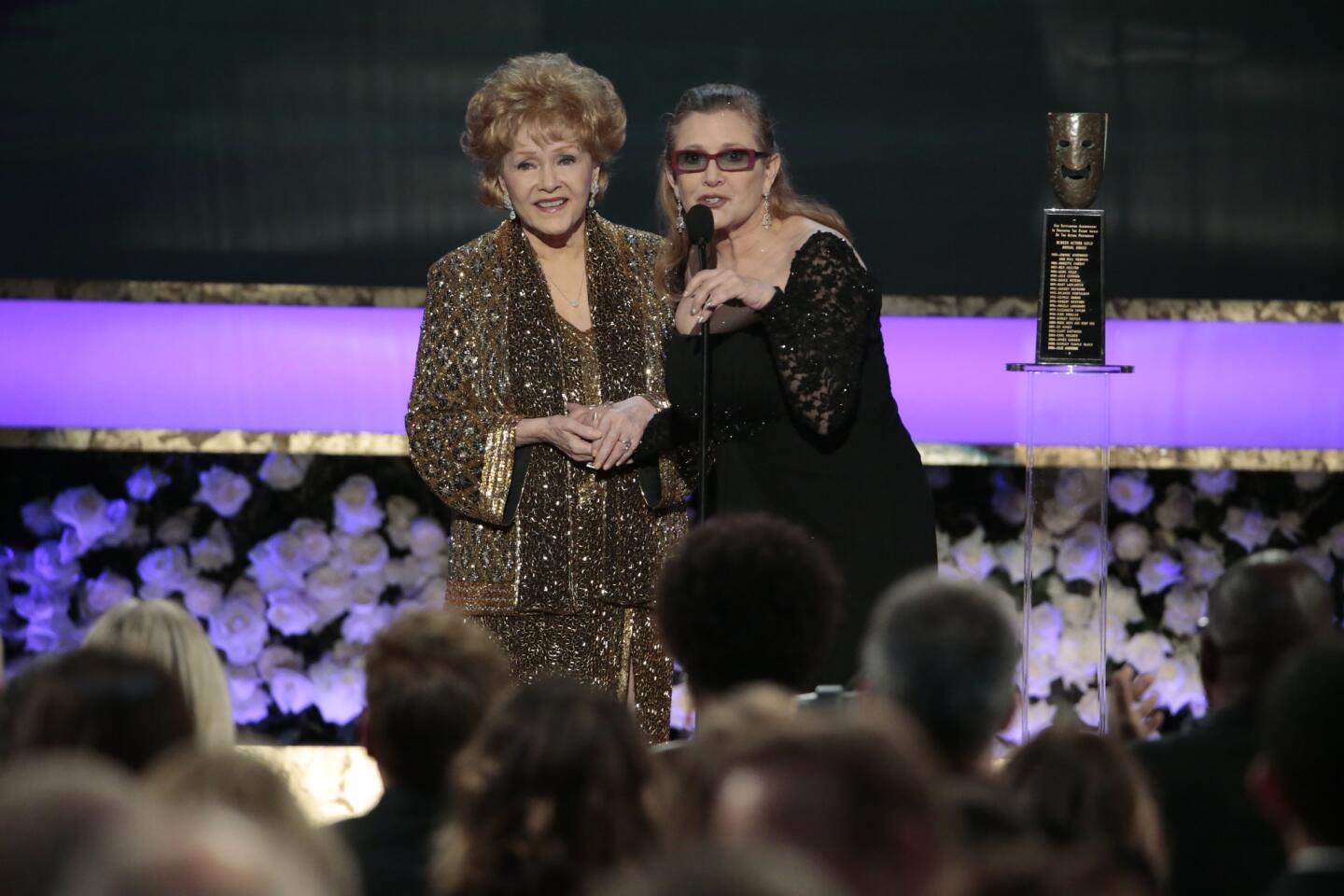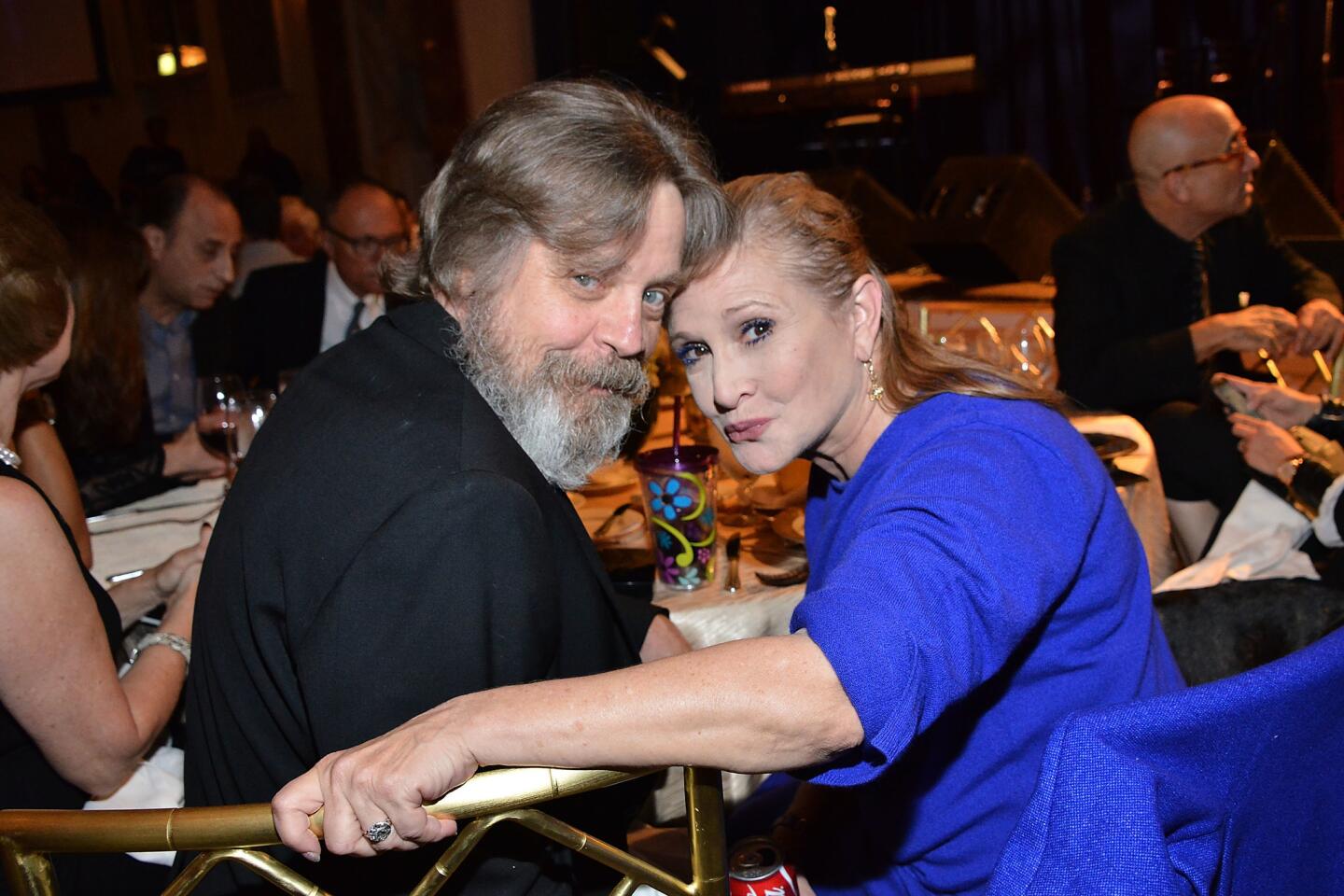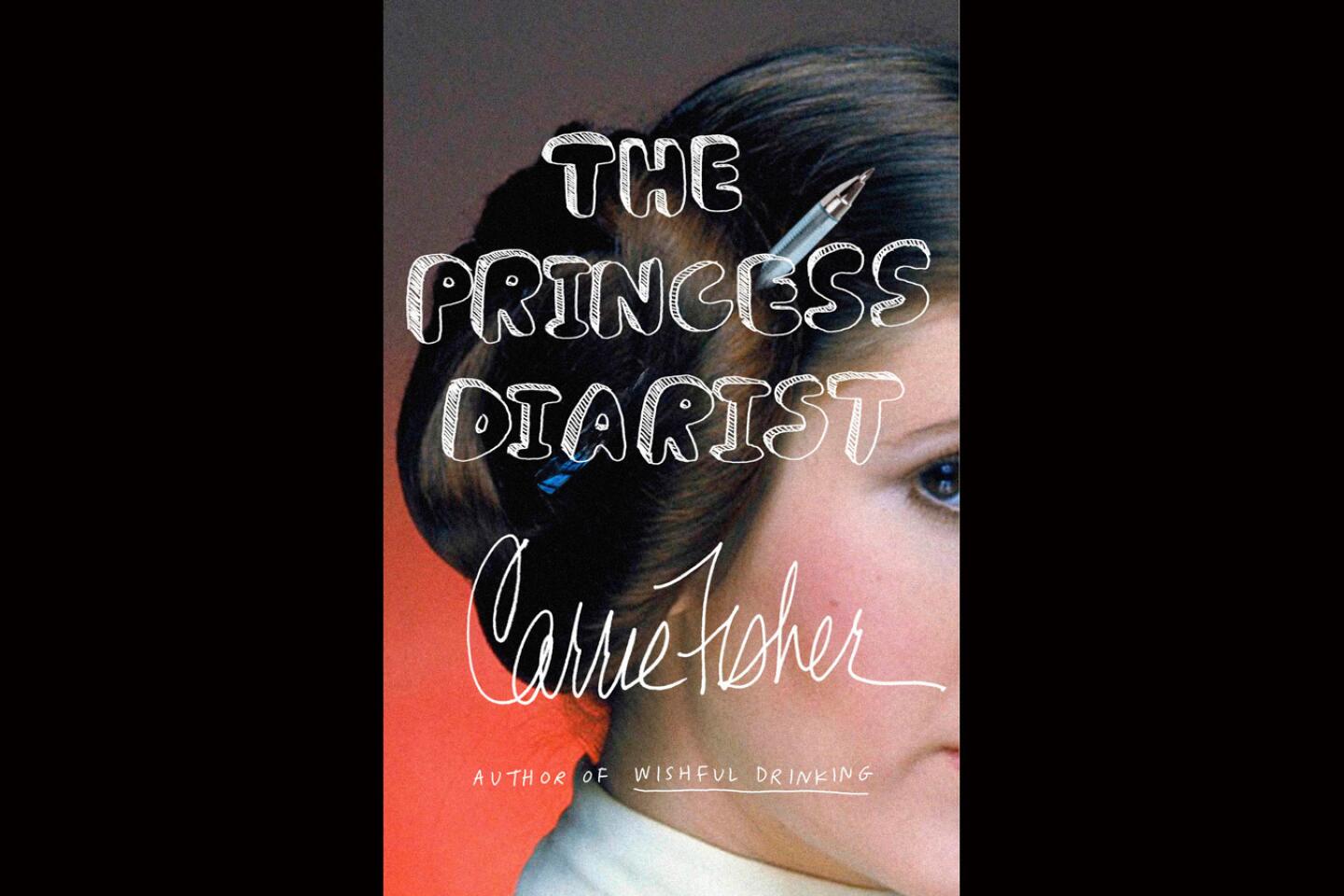From the Archives: Carrie Fisher on her wry memoir and going too fast
Carrie Fisher, the child of two Hollywood icons who rose to fame as Princess Leia of the blockbuster “Star Wars” series, has died at the age of 60. The Los Angeles Times interviewed Fisher in 2008 about her memoir, “Wishful Drinking.” This article was originally published on Dec. 16, 2008:
Carrie Fisher’s new book, “Wishful Drinking,” is a raw and funny memoir. Fisher writes openly of growing up a child of Hollywood, abusing substances and dealing with her manic depression. Ugh, such boring sentences to describe something that’s funny, wryly oversharing.
“The doctor that pumped my stomach sent me flowers,” she writes, describing the real-life inspiration for the opening of her book “Postcards From the Edge.” “With a note that read: ‘I can tell that you are a very warm and sensitive person.’ All that from the contents of my stomach!”
In addition to her writerly accomplishments, Carrie Fisher will always be, to me, that iconic gutsy chick Princess Leia, part sci-fi feminist role model and part someone who got to flirt with Han Solo. It’s clear that Fisher’s spark brought Leia to life. She’ll be signing “Wishful Drinking” at Book Soup tonight at 7 p.m.
She spoke to me from a cellphone while her assistant drove her to an interview. She began by listing authors she likes to read, and twice the connection sputtered and died. On the third try, I could hear the two of them laughing in the car — her assistant told me they’d figured it out, that each time she’d said “Nick Hornby,” the connection went dead.
Jacket Copy: Who do you like to read?
Carrie Fisher: David Sedaris. Susanna Moore, Lorrie More, George Eliot [the connection begins to short out, and eventually we’re reconnected] … I can’t say [Nick Hornby] Joan Didion, blah blah.
Jacket Copy: You write in detail about watching your mother, Debbie Reynolds, prepare to be the actress Debbie Reynolds, and your father was a singer. You were surrounded by performers — how did you come to think of yourself as a writer?
Carrie Fisher: I started reading really early. I wanted to impress my father, who is unimpressable. For whatever reason, he may have given me the “Drunken Boat” by Rimbaud ... reading was my first drug. I would just go into these books and never surface until it was over. My family called me “the bookworm,” and they didn’t say it in a nice way. I fell in love with words. I never had the hutzpah to think that I would be able to do write. I would underline words that I didn’t know and sentences that I loved. By about 16, I wanted to be Dorothy Parker.
JC: You’re about the closest thing we have.
Carrie Fisher: Aw. I figured out the ways I am like her. Do you want to hear?
JC: Yes.
Carrie Fisher: She’s short. She was half Jewish. She had brown hair and brown eyes. She was an alcoholic or addict. And she married a gay guy!
But she married the gay guy again, then died in a small apartment in New York, with a bunch of cats. ... These things I don’t want.
JC: This is your first memoir — previously you’ve written fiction. Do you think you will return to fiction, or will you stick with memoir?
Carrie Fisher: I like the distance of third person. You have more options. You can visit other characters and stuff. But I like David Sedaris — I like what he does with memoir. It never occurred to me to do it before.
JC: Is first person easier than third person?
Carrie Fisher: No. There’s something delicate about first person. You have to be careful — it gets so intense so fast. I’m a pretty intense human. You don’t want to get to a point where it gets too much.
Carrie Fisher on Proust and manic highs after the jump.
JC: Your book “Wishful Drinking” is a very fast read.
Carrie Fisher: I had two friends read it — close friends who read it in a night. Maybe that’s insulting. ... The first hundred pages of “Swann’s Way,” when he’s waiting for his mother to come kiss him goodnight — now that’s a hard read.
JC: Do you have a writing practice? Do you write every day?
Carrie Fisher: I make notes on things. It’s like ... [she decides against making a reference] ... I find, I write in my mouth. Stuff comes out when you’re talking. It’s like taking dictation. There are certain moments when I feel like a vessel — ’cause I’m going at a certain speed. On those things, I carry a diary and write things down.
JC: You write about having gone through Electro Convulsive Therapy (ECT), but you never describe the experience.
Carrie Fisher: I leave something that I can write about again. I still have it — I have maintenance. Want to come?
I will describe it — I think I have now, doing the press. ... You get put to sleep — they give you a medication that freezes your muscles, so you don’t have convulsions. ... You’re out for eight minutes. You have a headache that day. If it was this big, dramatic thing, I would have discussed it. ... It’s a fairly innocuous experience.
JC: Do you miss the highs of the manic episodes?
Carrie Fisher: It’s an incredibly intense experience. It’s vivid. You can take dictation from a vivid experience. You’re guaranteed to get some interesting stuff. ...
There’s a lot of liabilities to the fast thing. You’re peerless. No one can keep up with you — including you.
More to Read
The biggest entertainment stories
Get our big stories about Hollywood, film, television, music, arts, culture and more right in your inbox as soon as they publish.
You may occasionally receive promotional content from the Los Angeles Times.

